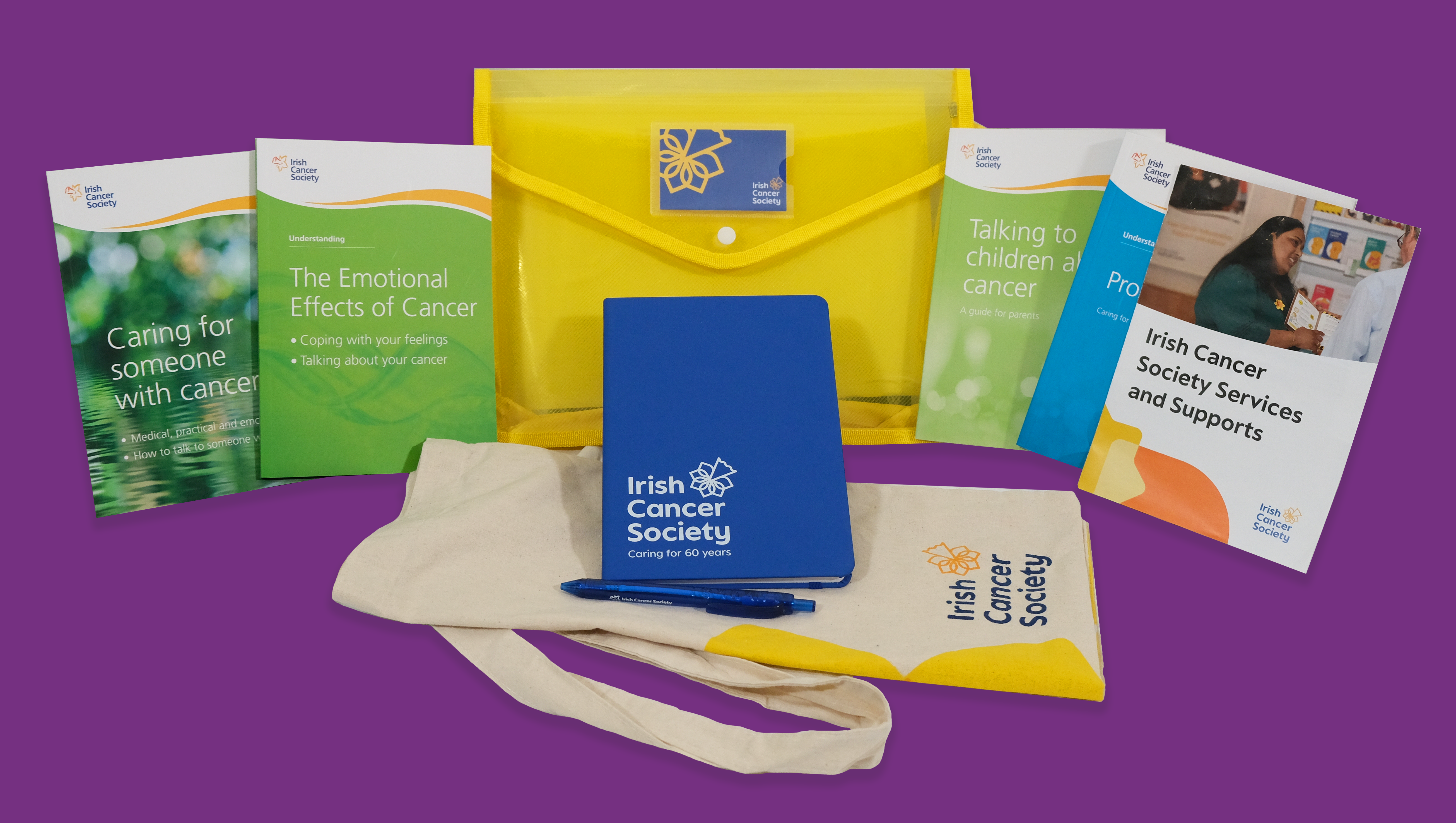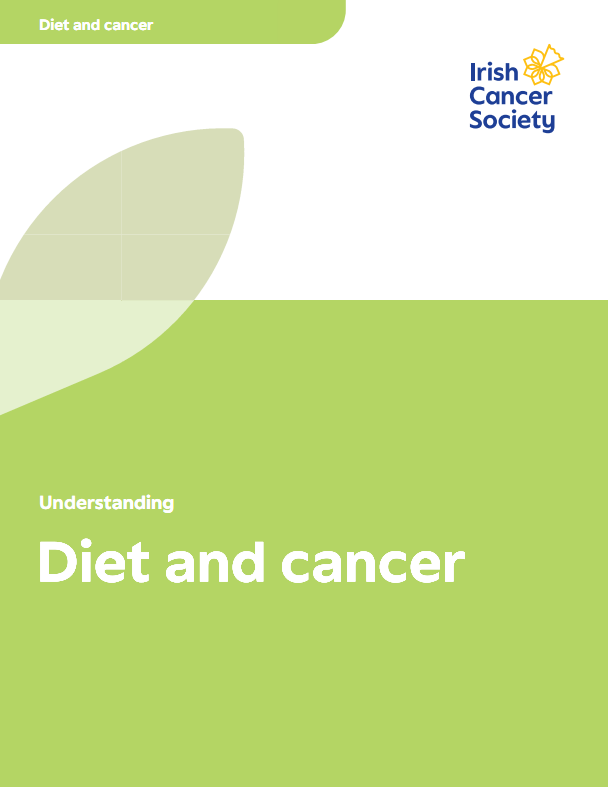Diet advice for cancer patients
Your diet during and after cancer treatment is very important. Some people may need to eat differently to get the right nutrients and to keep a healthy body weight.
Why is it important to eat well if you’ve been diagnosed with cancer?
If you have cancer, your diet during and after treatment is very important. The goal is to maintain your weight. This will help you to keep up your energy and strength, tolerate your treatment better and recover faster. Some people may need to eat differently during or after treatment to get the right nutrients and to keep a healthy body weight.
If you still have a good appetite, have no unintentional weight loss and are not underweight, you should try to follow a ‘balanced’ diet’.
Eating a well-balanced diet, which gives your body the nutrients it needs, can help you to:
- Feel better
- Keep up your energy and strength
- Keep your weight stable
- Avoid muscle loss
- Tolerate your treatment better, so you can finish your course of treatment
- Cope better with side-effects of treatment
- Reduce your risk of infection and other complications
- Recover faster
If you’re underweight or you’re having eating difficulties, you may need support and advice about your diet from your medical team.
It’s a good idea to weigh yourself every two weeks during your cancer treatment and let your medical team know if you’re losing weight.
Aim to keep your weight steady during your cancer treatment regardless of your body weight before treatment. Even if you are overweight or obese, you should try to maintain your weight (unless specifically advised to lose weight by your oncologist or haematologist). Weight loss during treatment can impact how you cope during your treatment. It can also make you feel more tired.
Your medical team can also help you with any eating difficulties you may be having.
What is a balanced diet?
To have a balanced diet you need to eat a variety of foods that provide the correct amount of nutrients your body needs to grow and work well. Nutrients are used by your body to give you energy, repair and build essential tissues and to help with lots of body functions. They include:
- Protein to help your body to repair itself after illness or treatment and fight infection
- Carbohydrates for energy
- Fats
- Vitamins and minerals help your body use the foods you eat
The food pyramid can help you to see how to balance your own diet, by getting the right amount of different types of foods. Cancer and cancer treatment can affect your body in different ways. You may need to eat different types of foods or different quantities. You might need special advice from a dietitian to keep a good balance in your diet. Ask to be referred to the dietitian if you have any worries about your diet.
Foods and drinks high in fat, sugar and salt - there are no recommended servings for these foods because they are not needed for good health.
Serving sizes:
- Small or fun-sized servings of chocolate, biscuits, cakes, sweets, crisps and other savoury snacks and sugary drinks – not every day, maximum of once or twice a week
Meat, fish, poultry, beans, eggs, nuts - 2 servings a day
Serving sizes:
- 50-75g cooked lean beef, lamb, pork, mince or poultry (half size of palm of hand)
- 100g of cooked fish, soya or tofu
- ¾ cup of beans or lentils
- 2 eggs
- 40g unsalted nuts or seed
Milk, yoghurt and cheese - 3 servings a day (5 for children aged 9-12 and teenagers aged 13-18)
Serving sizes:
- 1 glass (200ml of milk)
- 1 carton (125g) yoghurt
- 2 thumbs (25g) of hard or semi-hard cheese such as cheddar or Edam
- 2 thumbs (25g) of soft cheese such as brie or camembert
Wholemeal cereals and bread, potatoes, pasta and rice – 3-5 servings a day (up to 7 for teenage boys and men aged 19-50)
Serving sizes:
- 2 thin slices of wholemeal bread
- 1½ slices wholemeal soda bread or 1 pitta pocket
- 1/3 cup dry porridge oats
- ½ cup unsweetened muesli
- 1 cup flaked type breakfast cereal
- 1 cup cooked rice, pasta, noodles or cous cous
- 2 medium or 4 small potatoes, 1 cup yam or plantain
Vegetables, salads and fruit – 5-7 servings per day
- 1 medium sized fruit – apple, orange, pear or banana
- 2 small fruits – plums, kiwis or mandarin oranges
- Small fruits – 6 strawberries, 10 grapes or 16 raspberries
- ½ cup of cooked vegetables - fresh or frozen
- 1 bowl salad – lettuce, tomato, cucumber
- 1 bowl homemade vegetable soup
- 150ml unsweetened fruit juice
It may take some time before you feel more like yourself. Don’t worry if you don’t feel like cooking home-cooked meals straight away.
- Make simple meals using easy-to-prepare recipes.
- Buy some prepared foods like grated cheese or peeled and chopped vegetables to make cooking easier.
- Stock up on healthy snacks. For example, salads, cheese portions, yogurts, nuts and seeds, fruit, baked beans, smoothies, soups.
- Buy foods you are able to eat even when ill.
- Cook enough for two or three meals. You can freeze any extra if you have a freezer.
- Buy healthy ready-made meals, frozen meals and takeaways for when you don’t feel like cooking. For example, soup, salads, stir-fries, fish pie, stews, pasta bakes, curries. Look for meals that include plenty of vegetables and protein. Avoid meals with a lot of additives, fat or salt.
- Don’t be afraid to ask a friend or family member for help with cooking or shopping.
Average daily calorie needs for all foods and drinks for adults
Women
Active 2000kcal / Inactive 1800kcal
Men
Active 2500kcal / Inactive 2000kcal
Body mass index (BMI)
BMI is a number that tells you if your weight is right for your height. BMI is graded so it can tell if you are underweight, a healthy weight, overweight or obese (fat).
| Underweight | Healthy Weight | Overweight | Obese |
|---|---|---|---|
| 18.5 or less | 18.5-24.9 | 25.0-29.9 | 30 or more |
Your dietitian can measure your BMI. Sometimes there are scales in shopping centres or pharmacies that will measure it for you.
BMI is a guide only. Most people are advised to keep their current body weight during cancer treatment. If you are worried about your BMI score, talk to your dietitian. If you are losing or gaining weight, discuss it with your nurse, doctor or dietitian.
Measuring BMI yourself
You can also calculate your BMI yourself. But first you will need to know your weight in kilograms (kg) and your height in metres (m). Divide your weight by your height and then divide the result again by your height. There are also websites that can help you to calculate it.
Build-up diet for cancer patients
During cancer treatment, some people are advised to eat a high-protein, high calorie ‘build-up’ diet, to help them maintain their weight. You will be advised to follow this type of diet if you are losing weight unintentionally, if you’re having difficulty eating or if you’re underweight.
Read more about the build-up diet for cancer patients.
Do I need a special diet or supplements?
Don’t change your diet without advice from your doctor or dietitian. Diets not recommended by your doctor or dietitian can do more harm than good. Your doctor or dietitian will talk to you about the foods you should eat or avoid and help you if you’re having any diet-related problems.
Vitamin and mineral supplements are not recommended during cancer treatment unless advised by your doctor or dietitian. Read more about special diets and supplements.
Are there any foods that affect my treatment?
It's best to avoid alcohol, or at least reduce how much you drink, during chemotherapy or targeted therapies. This is because it may affect treatment or dehydrate you. Ask your doctor for advice.
Alcohol may also irritate your mouth if you are receiving radiotherapy to your head, neck or chest region. Even small amounts found in mouthwashes can hurt if your mouth is inflamed.
Some citrus fruits – particularly grapefruit – can interact with some cancer drugs. Ask your doctor or pharmacist if you should avoid grapefruit or other citrus fruits during treatment.
Herbal products and vitamin/mineral supplements may also affect your treatment. Don’t take any supplements unless recommended by your medical team, even if you have used them safely before. Read more here.
Avoid probiotic supplements if you're having chemotherapy. If your white blood cell count is low (neutropenia), it is best to avoid probiotic foods, such as probiotic drinks and yoghurts, as they contain live bacteria.
Ask your doctor or pharmacist about possible interactions and foods you should avoid with your medicine.
What eating problems might I have?
Some cancer treatments can cause side-effects that affect how well you can eat. Common eating problems include; poor appetite; taste and smell changes; sore mouth, gums or throat; difficulty swallowing; nausea; vomiting and diarrhoea. You may lose muscle, which can make you feel weaker. You may also lose or gain weight.
Find out more about eating difficulties and get advice on how to cope.
Dietary content updated from our Understanding Diet and Cancer booklet (2024).
Reviewed by Veronica McSharry, CORU Registered Senior Dietitian in Oncology and Haematology and Fiona Roulston, CORU Registered Dietitian Manager in Oncology.



Talk to a Cancer Nurse

Support Line
Our Daffodil Centres


